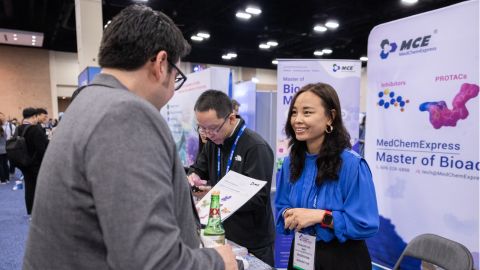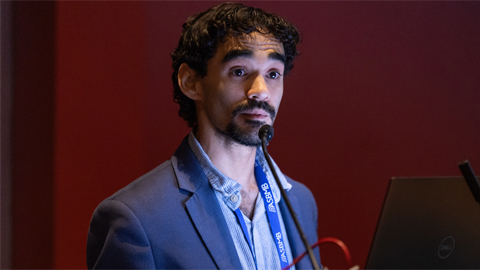Scientific publishing, then and now
When I was a graduate student at Calcutta University more than five decades ago, I submitted a paper on leucine amino peptidase localization in the guinea pig testis to a well-known journal in the U.K. The staff edited my English and shortened the paper without changing the theme or meaning of the study; the paper was then accepted. This paper helped me to obtain a postdoctoral fellowship in the U.S. and greatly helped my career advancement.
Back then, editors provided constructive feedback that improved our manuscripts. Editors and reviewers detailed the strengths and shortcomings of a study and how to address the deficiencies. Often, they suggested important additional experiments or constructive discussions to support the theme of the study. Once we addressed these comments, the paper would be accepted.
Like everything else, publishing has changed over the years.
My lab studies the uterine characteristics and circumstances necessary for successful embryo implantation, the implications of uterine aging and the origins of reproductive carcinomas. Recently, we worked for more than three years on a study using nine genetically engineered mouse lines with uterine-specific single and double mutations.
The study used molecular and cell biological techniques including 3D imaging of the implantation sites to show a unique discourse between heparin-binding EGF-like growth factor and the VANGL planar cell polarity protein 2 in implantation through VANGL2 tyrosine phosphorylation.
The experiments were time-consuming and tedious, but we felt satisfied with the study and our coauthors at other academic institutions gave us enthusiastic feedback. We had stumbled into a new area of investigation that may have implications for women’s reproductive success.
My postdoc wrote the first draft of the paper about this work. We edited it more than 50 times with input from our co-authors and then submitted it to a journal with a high impact score.
Within days of submission, we received an email rejecting the manuscript without in-depth review. We tried two other journals and received similar rejection letters. Apparently, the journal editors did not like the study, but they wouldn’t tell us why. My postdoc, who worked hard on the project even during the peak of the COVID-19 pandemic, was upset. This paper would be likely to help her in her career when she returned to her home country.
After revision and additional experiments, the paper was eventually published in a highly cited journal, but the process left me sad and irritated. In the past, we had worked with and published in the journals that had so quickly rejected this recent research. I thought about what had changed — and how we need to change for our survival. Or maybe the journals need structural changes.I have been an author on 376 published studies, and I find that most papers submitted to certain high-impact journals are now rejected outright without commentary or directions on how to improve the study. This has an adverse impact on the career advancement of our graduate students, postdocs and early-career scientists. Those who can publish their papers in these influential journals are able to secure better positions.
More importantly, the editors adopting this approach miss an opportunity to improve authors’ work and guide investigators as to what critical aspects of the study are missing. This is a loss to young investigators and a loss to science in general.
Do I have any major expectations to correct this course? No.
The large number of submissions may prevent editors or editorial staff from giving in-depth attention to every deserving manuscript. To remedy this, the journals should explicitly outline their scope and their expectations in detail so authors can avoid submitting manuscripts that are not suitable for those particular journals. However, most reputed journals shy away from laying out these details.
In addition, many editors appear to lack broad expertise and tend to use shortcuts to evaluate manuscripts. They favor authors they’ve heard of from well-known universities or institutions. As a result, authors from less-known places are largely ignored.
Are all papers published in high-impact journals influential? No. And we don’t expect all our studies will be exceptional. In this case, I thought we have an exceptional observation, so it’s difficult to understand why we had so much trouble getting that study published in one of these journals.
I’d like to see the publishing industry restructured to maximize the benefits and joys of scientific discoveries. This restructuring for the better will require national debate.
Enjoy reading ASBMB Today?
Become a member to receive the print edition four times a year and the digital edition monthly.
Learn moreFeatured jobs
from the ASBMB career center
Get the latest from ASBMB Today
Enter your email address, and we’ll send you a weekly email with recent articles, interviews and more.
Latest in Opinions
Opinions highlights or most popular articles

Hidden strengths of an autistic scientist
Navigating the world of scientific research as an autistic scientist comes with unique challenges —microaggressions, communication hurdles and the constant pressure to conform to social norms, postbaccalaureate student Taylor Stolberg writes.

Black excellence in biotech: Shaping the future of an industry
This Black History Month, we highlight the impact of DEI initiatives, trailblazing scientists and industry leaders working to create a more inclusive and scientific community. Discover how you can be part of the movement.

Attend ASBMB’s career and education fair
Attending the ASBMB career and education fair is a great way to explore new opportunities, make valuable connections and gain insights into potential career paths.

Benefits of attending a large scientific conference
Researchers have a lot of choices when it comes to conferences and symposia. A large conference like the ASBMB Annual Meeting offers myriad opportunities, such as poster sessions, top research talks, social events, workshops, vendor booths and more.

When Batman meets Poison Ivy
Jessica Desamero had learned to love science communication by the time she was challenged to explain the role of DNA secondary structure in halting cancer cell growth to an 8th-grade level audience.

The monopoly defined: Who holds the power of science communication?
“At the official competition, out of 12 presenters, only two were from R2 institutions, and the other 10 were from R1 institutions. And just two had distinguishable non-American accents.”

